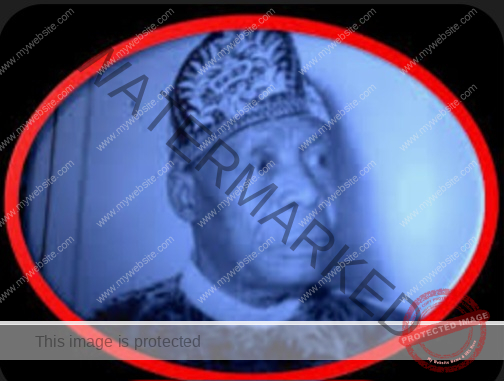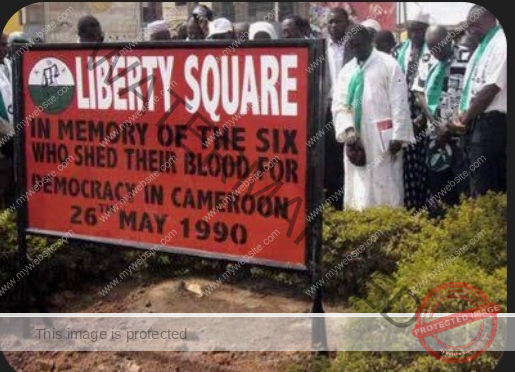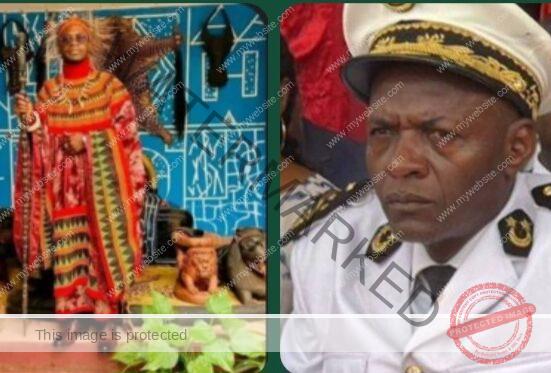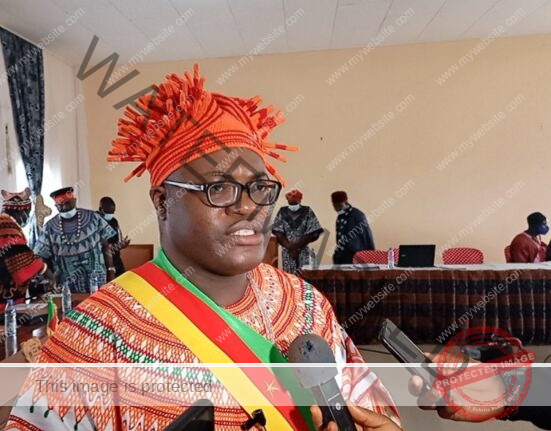Chief Nyenti stephen Eyong: The man known as a straight-talking politician who stood for the full Independence of the British southern cameroon from inception.
By The Independentist editorial desk
In the story of British Southern Cameroons’ troubled journey to independence, the spotlight has long fallen on two familiar figures: John Ngu Foncha, who pushed for reunification with French Cameroon, and E.M.L. Endeley, who leaned toward joining independent Nigeria. But there was a third voice – powerful, principled, and now largely forgotten – that offered a different path altogether. That voice belonged to Chief Nyenti Stephen Eyong, the man who dared to call for complete independence.
Little survives in the public record about Chief Nyenti’s early life, though it is believed he hailed from the Mamfe Division and inherited the responsibilities of a traditional ruler. As a chief, he would have been both custodian of his people’s customs and a local administrator – a role that carried significant moral authority in the 1950s.
As the 1961 plebiscite loomed, the British-administered territory faced two officially sanctioned futures: merge with Nigeria or unite with French Cameroon. Chief Nyenti saw danger in both. He warned that these paths could erode Southern Cameroons’ identity, invite political marginalization, and sow the seeds of conflict – fears that would prove prophetic in the ongoing Anglophone Crisis.
Determined to offer a genuine alternative, on September 27, 1959, he founded the Cameroon Commoners Congress (CCC). Its mission was clear: to campaign for a third option – a sovereign Southern Cameroons, standing on its own among the family of nations.
Chief Nyenti was known as a straight-talking politician who refused to play along with what he saw as the deceptions of the era’s dominant leaders. As one contemporary described him, he was “a man who stood for the truth when others would not, determined to right the wrongs of pretentious politicians.”
But the odds were stacked against him:
British and UN Disinterest – Both the colonial power and the United Nations were fixated on the two mainstream options. London dismissed the idea of an independent Southern Cameroons as “economically unviable” and even spread propaganda to nudge voters toward Nigeria.
Political Exclusion – The dominant political forces – Foncha’s KNDP and Endeley’s KNC/KPP – effectively controlled the negotiations and shaped the plebiscite to exclude Nyenti’s proposal.
No International Backing – Without allies abroad, the CCC’s push for sovereignty found no powerful sponsors.
When the vote came in February 1961, the ballot paper offered only two choices: join Nigeria or join French Cameroon. Nyenti’s vision never made it to the ballot box. His campaign didn’t lose at the polls – it was denied entry into the race.
Today, historians and activists alike see this exclusion as a turning point. Denying Southern Cameroonians the right to vote for their own independence, they argue, was a critical flaw in the decolonization process – one that helped fuel the mistrust and political fracture still visible between Anglophones and Francophones in Cameroon.
Chief Nyenti Stephen Eyong’s story is not just a footnote. It is a reminder that the dream of an independent Southern Cameroons did not begin with the modern struggle – it was born, clearly and courageously, before independence itself. And it is the story of a leader who, though sidelined in his own time, still speaks to the enduring desire for a distinct and self-determined Anglophone identity.
The Independentist editorial desk





















Leave feedback about this